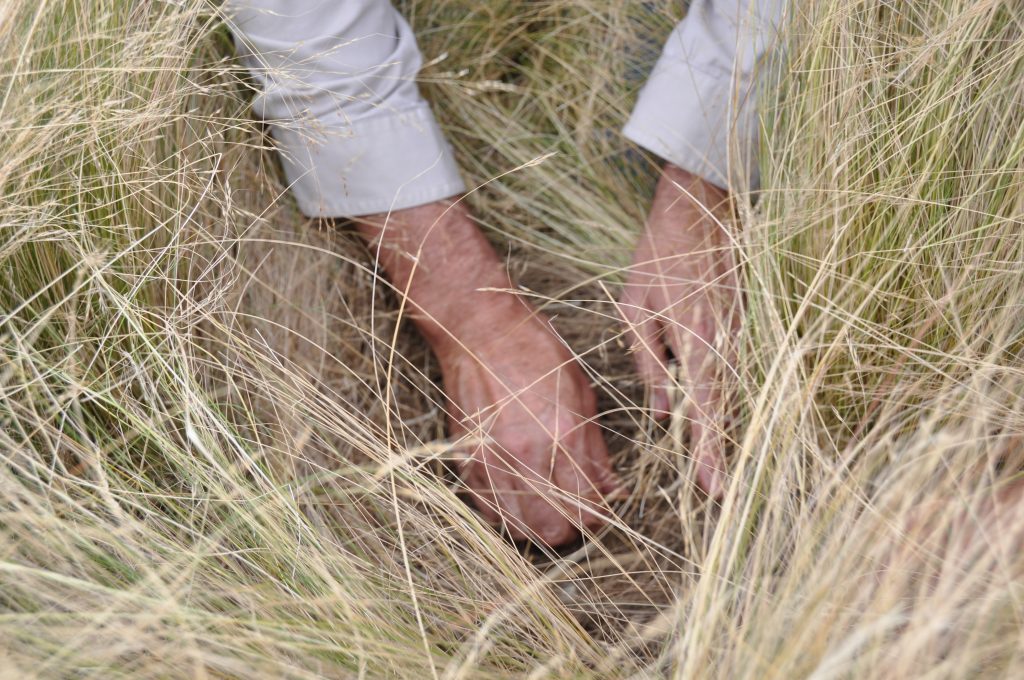The next round of the Tasmanian Government’s $5 million Weeds Action Fund is on its way. Under Stage Two of the Weeds Action Fund, a small grants round is set to open in spring, to support landholders, land managers and community organisations to tackle priority weeds.
Stage One in 2019 saw the funding of 34 projects across Tasmania, from working on Chilean needle grass in the Coal River Valley, orange hawkweed in the central highlands, African boxthorn in the north, and many other projects that protect both Tasmania’s natural and agricultural values.
One successful applicant, woolgrower Roderic O’Connor, received funding to help support his long-term effort at tackling serrated tussock at Connorville, Cressy.
Serrated tussock is regarded as one of the worst pasture weeds due to its invasiveness, its competitive nature, and its significant impact on agricultural productivity. It is highly unpalatable to livestock and can lead to loss of condition, and in some cases, death if ingested. In bushland areas, the tussock can outcompete native grasses and reduce biodiversity.
Roderic is vigilant when it comes to this significant weed, ensuring it doesn’t get into productive areas of the property.
“Yearly management is essential, as is managing the source of seed areas. This is the time of year that you need to get in and manage it before the seed becomes viable and spreads.
“We have patches of serrated tussock over 1500 hectares of predominantly open run country. It is essential that we work closely with our neighbour. We have managed to reduce the infestation by about 40 per cent through annual management over the last nine years, but still have a way to go,” Mr O’Connor said.
Ian Sauer, Chair of the Weeds Action Fund, and Vice-Chair of the TFGA is excited about the opportunity the Weeds Action Fund gives the community to be highly strategic and targeted about tackling weeds. A ‘shared responsibility’ of weed management is a big focus of the fund.
“Landowners are legally responsible for the control of declared weeds, but sometimes tenure gets in the way. Neighbours are encouraged to be strategic and work together to identify, and where possible, eradicate weeds that impact their land.
“Weed management is everyone’s responsibility. Please talk with your neighbours, identify the scope of the problem, and start planning now for projects that will make a measurable difference,” Mr Sauer said.
NRM North will be overseeing the delivery of Stage Two of the fund over the next three years. Rosanna Coombes, NRM North CEO, explains the fund will be available state-wide, and those interested in seeking funding should register their interest now. “We are working closely with our delivery partners, NRM South and the Cradle Coast Authority, to prepare for the small grants round this spring. “Another funding round to support larger-scale, more complex projects will be released later this financial year, acknowledging that landholders tackling complex weeds issues need time to build cross-tenure partnerships, access sound research, and commence strategic project planning,“ said Ms Coombes.
To register your interest in the Weeds Action Fund, please visit www.nrmnorth.org.au or phone 03 6333 7777.
Content for this post has been provided courtesy of NRM North.
